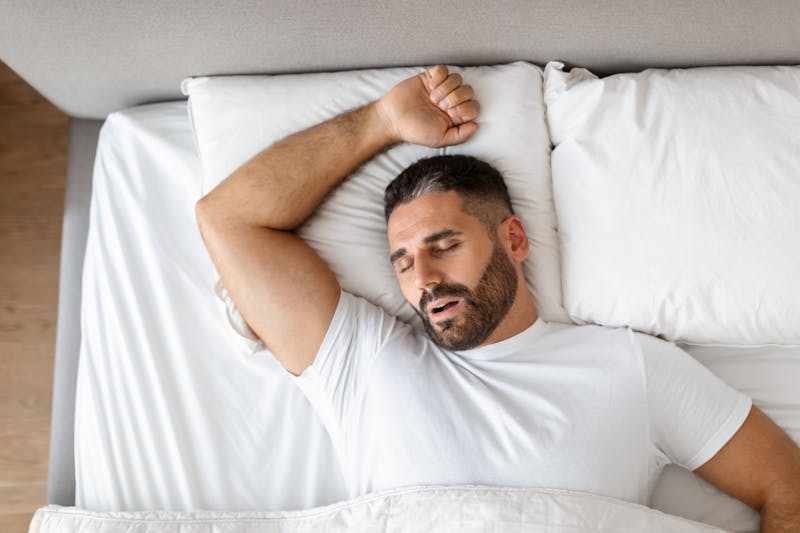
Snoring is often dismissed as a mere annoyance, but it can sometimes signal underlying health issues. Many people who snore also experience other symptoms, such as swollen lymph nodes, which raises the question: can snoring cause swollen lymph nodes?
While snoring itself doesn’t directly cause lymph node swelling, the conditions that lead to snoring, such as infections and chronic inflammation, may be to blame. The experts at Southern ENT are here to help you understand what causes swollen lymph nodes, how that relates to snoring, and how we can help.
What Causes Swollen Lymph Nodes?
Lymph nodes are an essential part of your immune system, acting as filters for harmful substances and helping your body fight infections. Here’s what you need to know:
- Swollen lymph nodes, medically known as lymphadenopathy, usually occur when the body is fighting off an infection or inflammation
- They can swell in response to bacterial or viral infections, such as a cold, sinus infection, or tonsillitis
- Typically, swollen lymph nodes are a sign that your immune system is working hard to address a problem in your body
Snoring Causes and Impact
Snoring occurs when airflow through the mouth and nose is partially blocked, causing the surrounding tissues to vibrate and produce sound. While snoring is common, its causes vary from person to person and may include:
- Nasal congestion
- A deviated septum
- Enlarged tonsils
- Sleep apnea
The Connection Between Snoring and Swollen Lymph Nodes
While snoring itself does not directly cause swollen lymph nodes, the conditions that contribute to snoring may. For example:
- Sinus Infections: When snoring results from chronic sinusitis, the infection can spread to the lymph nodes, causing them to swell.
- Tonsillitis: Enlarged tonsils, which often cause snoring, can become infected, leading to inflammation and swollen lymph nodes in the neck and throat area.
- Colds or Flu: Temporary nasal congestion from a cold or flu can lead to snoring. These viral infections can also cause lymph node swelling as the body fights off the illness.
Sleep apnea, a more serious form of snoring, can also contribute to chronic inflammation in the airways. These repeated interruptions in breathing can place stress on the body, leading to inflammatory responses that may trigger lymph node swelling. Chronic inflammation from untreated sleep apnea can cause ongoing issues in the respiratory system, creating a vicious cycle of poor sleep quality, inflammation, and health complications.
When to See a Doctor for Snoring and Swollen Lymph Nodes
If you notice swollen lymph nodes along with persistent snoring, it’s essential to consult a doctor. While swollen lymph nodes often resolve on their own, they can indicate a more serious underlying issue if they persist, especially if accompanied by other symptoms like:
- Fever
- Sore throat
- Fatigue
- Night sweats
A healthcare professional should also address persistent snoring, mainly when linked to conditions like sleep apnea or chronic sinus infections, to prevent further complications.
Southern ENT is Here to Help
While snoring alone may not directly cause swollen lymph nodes, it can be a symptom of underlying conditions that do. Chronic sinus infections, sleep apnea, or tonsillitis can contribute to both, making it essential to address the root causes of these issues.
If you experience persistent snoring or swollen lymph nodes, consulting with an ENT specialist can help you identify the problem and find the right solution. At Southern ENT Specialists, our team of ENT doctors is dedicated to helping you breathe easier and sleep better. Contact us today to schedule a consultation and take the first step toward better health.
